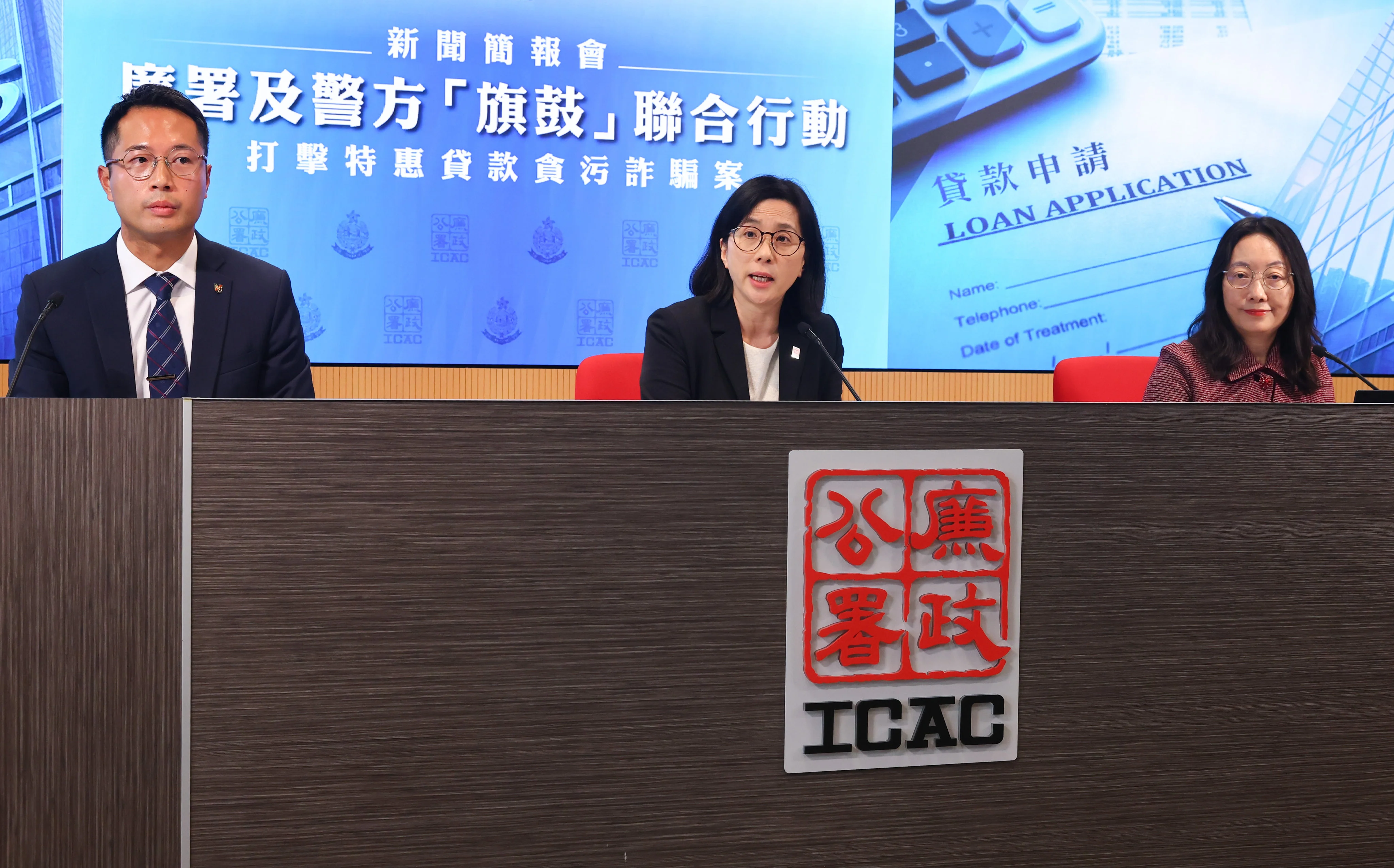Copyright scmp

A total of 32 people, including more than a dozen frontline bank staff, have been arrested in a joint operation by Hong Kong’s anti-corruption agency and police for scamming HK$140 million (US$18 million) in government-backed preferential loans. The operation, code-named Momentum, discovered bribes totalling HK$500,000 were paid to 13 frontline employees across 10 banks, principal investigator Grace Yee Hin-lai of the Independent Commission Against Corruption said on Friday. She said seven intermediaries, seven loan applicants and five other individuals were also arrested in the sting on October 30 and 31, which targeted 28 applications from 22 small and medium-sized enterprises (SMEs). “The Independent Commission Against Corruption investigation shows that the entire process of the loan applications involved in the case was orchestrated by intermediaries,” Yee said. The case involved loan products under the government’s Small and Medium Enterprises Financing Guarantee Scheme, including 80, 90 and 100 per cent credit guarantee products. The schemes were designed to help businesses survive the economic downturn following the Covid-19 outbreak. The 100 per cent guarantee, launched in April 2020 during the pandemic, aimed to ease pressure on firms struggling to pay wages and rent, with the application period ending in March last year. Yee said the intermediaries, some of whom were former bank staff, handled every step of the process – from recruiting puppet SME owners and bribing bank staff to open accounts to processing documents and distributing the illicit gains. Investigators found most of the enterprises involved had no substantive business operations or were shell companies set up specifically to apply for the loans. Chief Inspector Ricky Ho Yun-yin of the commercial crime bureau said officers arrested seven applicants who were directors of nine SMEs for allegedly submitting forged documents to banks. Ho said these included falsified bank statements, Mandatory Provident Fund contribution records, company tenancy agreements and tax slips. “By doing so, they exaggerated their turnover, leading approval officers to mistakenly believe that these small and medium-sized enterprises had substantial operations, thereby approving the loans,” Ho said. He added that eight of the SMEs successfully obtained loans totalling HK$50 million, which were withdrawn in a short period, and that most had failed to make repayments. Yee explained bank staff received around 6 per cent of each loan amount as a reward. The puppet enterprises received 5 to 7 per cent, with the intermediaries keeping the remainder. “In one case, we found that the intermediary and the bank’s frontline staff agreed to pay the other party about 6 per cent of the loan amount as pay. After the bank approved a loan of HK$1.2 million, the bank’s frontline staff received about HK$70,000,” Yee said. While authorities have previously addressed fraud involving the pandemic loan schemes, Friday’s briefing revealed a far more extensive network of corruption across the banking sector. A case in 2021 involved HK$40 million in scams and bribes to four bank officers. Another operation in March this year, code-named “Arrow Shower”, targeted mortgage referral bribes involving 18 staff across 10 banks. Yee called the investigation the first joint operation of its kind targeting this specific loan-related corruption, noting that the large-scale systemic case began with a single public tip-off. “The case is originally from a very supportive and honest citizen who reported the case to us. Although the complainant provided limited information, our officers worked hard for the case … from a single case, we now can crack the case,” Yee said. Both agencies said investigations were continuing and did not rule out further enforcement action. “In this case, there are individuals whom we are still investigating,” Yee added. Irene Mok, vice-president for small and medium-sized enterprise financing guarantee scheme operations at Hong Kong Mortgage Corporation Insurance Limited, said the authority would “absolutely not tolerate” illegal means of obtaining loans and would tighten monitoring. “We will continue to work closely with law enforcement agencies and the banking industry to analyse the characteristics and methods of suspicious cases, and study with banks how to strengthen pre-loan credit approval, due diligence and monitoring mechanisms,” she said. Mok said that, as of the end of October, the 80 and 90 per cent guarantee products had recorded approvals for more than 47,000 applications, benefiting more than 24,000 enterprises and 400,000 related employees. She added that the 100 per cent guarantee loan scheme had also approved more than 67,000 applications, cumulatively benefiting more than 40,000 enterprises and 400,000 related employees.



